Related Research Articles
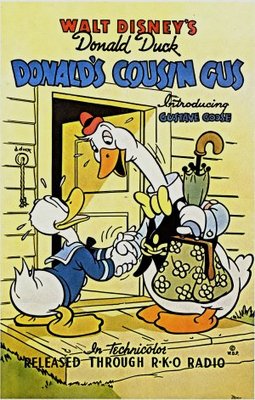
Donald's Cousin Gus is a Walt Disney cartoon released on May 19, 1939. Gus Goose debuted as a recurring character in Al Taliaferro's Donald Duck newspaper comic since 9 May 1938.

Walter Tetley was an American actor specializing in child impersonation during radio's classic era, with regular roles as Leroy Forrester on The Great Gildersleeve and Julius Abbruzzio on The Phil Harris-Alice Faye Show, as well as continuing as a voice-over artist in animated cartoons, commercials, and spoken-word record albums. He is perhaps best known as the voice of Sherman in the Jay Ward-Bill Scott Mr. Peabody TV cartoons.

Mighty Mouse: The New Adventures is an American animated television series. It is a revival of the Mighty Mouse cartoon character. Produced by Bakshi-Hyde Ventures and Terrytoons, the show aired on CBS on Saturday mornings from fall 1987 through the 1988–89 season. It was briefly rerun on Saturday mornings on Fox Kids in November and December 1992.
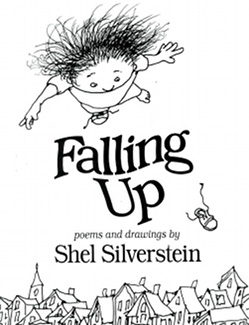
Falling Up is a 1996 poetry collection primarily for children written and illustrated by Shel Silverstein and published by HarperCollins. It is the third poetry collection published by Silverstein, following Where the Sidewalk Ends (1974) and A Light in the Attic (1981), and the final one to be published during his lifetime, as he died just three years after its release. Falling Up was the recipient of the Booklist Editors' Award in 1996.. In 2015, a special edition of the book was published, with 12 new poems.
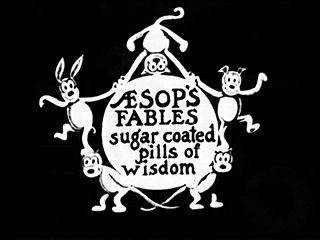
Aesop's Fables is a series of animated short subjects, created by American cartoonist Paul Terry. Produced from 1921 to 1934, the series includes The Window Washers (1925), Scrambled Eggs (1926), Small Town Sheriff (1927), Dinner Time (1928), and Gypped in Egypt (1930). Dinner Time is the first cartoon with a synchronized soundtrack ever released to the public.
"Let a Smile Be Your Umbrella" is a popular song.

The Wearing of the Grin is a 1951 Warner Bros. Looney Tunes cartoon directed by Chuck Jones and written by Michael Maltese. The short was released on July 14, 1951, and stars Porky Pig.
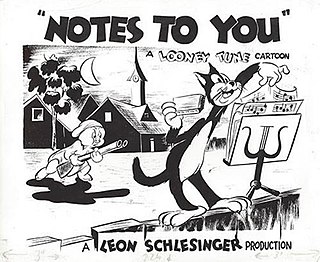
Notes to You is a 1941 Warner Bros. Looney Tunes cartoon directed by Friz Freleng. The short was released on September 20, 1941, and stars Porky Pig.
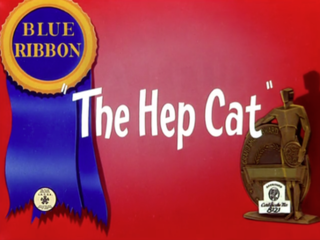
The Hep Cat is a 1942 Warner Bros. Looney Tunes cartoon directed by Bob Clampett, written by Warren Foster, animated primarily by Robert McKimson, and set to a musical score composed by Carl W. Stalling. The short was released on October 3, 1942. This cartoon was the first Technicolor Looney Tunes short.
Tom Tom Tomcat is a 1953 Warner Bros. Merrie Melodies animated short directed by Friz Freleng. The short was released on June 27, 1953, and stars Tweety and Sylvester.

Henpecked is a 1930 animated short produced by Walter Lantz that features Oswald the Lucky Rabbit.

The Butcher Boy is an animated cartoon by Walter Lantz Productions. It is the second of the thirteen Pooch the Pup cartoons.
World War II changed the possibilities for animation. Prior to the war, animation was mostly seen as a form of family entertainment. The attack on Pearl Harbor was a turning point in its utility. On December 8, 1941, the United States Army began working with Walt Disney at his studio, stationing Military personnel there for the duration of the war. The Army and Disney set about making various types of films for several different audiences. Most films meant for the public included some type of propaganda, while films for the troops included training and education about a given topic.

Speaking of the Weather is an animated cartoon short in the Merrie Melodies series produced by Leon Schlesinger for Warner Bros. Released to theaters on September 4, 1937, it was directed by Frank Tashlin and animated by Joe D'Igalo and Volney White.
Wild Over You is a 1953 Warner Bros. Looney Tunes short animated film directed by Chuck Jones. The short was released on July 11, 1953, and stars Pepé Le Pew.
Silvery Moon, also known by its alternative title Candy Town, is a 1933 American Pre-Code animated short film by the Van Beuren Studio and as part of the Aesop's Fables cartoon series. The story appears to be inspired by the story of Hansel and Gretel, published by the Brothers Grimm, albeit having a less dark scenario.
Home, Tweet Home is a 1950 Warner Bros. Merrie Melodies animated short directed by Friz Freleng. The short was released on January 14, 1950, and stars Tweety and Sylvester.

Three For Breakfast is an American animated short film directed by Jack Hannah. Part of the Donald Duck film series, the film was produced in Technicolor by Walt Disney Productions and released to theaters by RKO Radio Pictures on November 5, 1948.

September in the Rain is a 1937 Warner Bros. Merrie Melodies cartoon directed by Friz Freleng. The short was released on December 18, 1937.
References
- ↑ Webb, Graham (2011). The Animated Film Encyclopedia: A Complete Guide to American Shorts, Features and Sequences, 1900-1999. McFarland & Co. p. 386. ISBN 978-0-7864-4985-9.